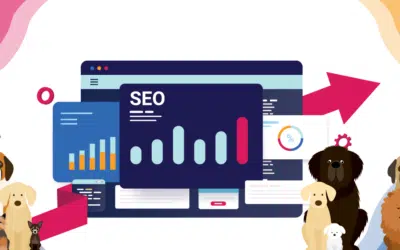It’s no surprise that Chief Marketing Officers (CMOs) are increasingly focused on aligning their marketing functions with broader enterprise goals. According to a recent Gartner survey, 45% of CMOs identify aligning on shared business goals as the most crucial activity for driving business outcomes. Yet, a disheartening statistic reveals that less than half of CMOs were personally involved in such alignment activities over the past year. This gap highlights a critical area for improvement in strategic planning and execution.
5 Strategic Planning Steps
To bridge this gap and ensure your marketing efforts significantly contribute to overall business success, your strategic plan must clearly define how your marketing function will drive enterprise objectives. Although strategic planning can be challenging, focusing on key activities can differentiate your marketing plan and amplify its impact. Here’s a summary of five essential steps to make your marketing strategy more effective, along with tools and techniques to capture and share key data and information with stakeholders.
Sync Marketing Strategy with Business Goals
A successful marketing strategy begins with a deep understanding of the business context. This means not only confirming your organization’s mission and goals but also ensuring that every marketing team member knows how their role supports these objectives. Start by identifying key stakeholders—such as senior executives and department heads—and grasping their expectations and viewpoints on marketing’s contribution to business success.
Additionally, brand research and strategy play a critical role in establishing a strong and distinct brand identity. Through comprehensive market research and competitive analysis, your organization can gain insights into its unique value proposition and target audience. This information enables you to craft compelling brand narratives, messages, and visuals that effectively engage customers and differentiate you from competitors.
Assess Capabilities & Identify Gaps
With a solid grasp of your business context, the next crucial step is to evaluate your marketing function’s capacity to meet its goals. This involves a thorough assessment of your current capabilities and identifying any gaps that might impede your progress. For instance, conducting a SWOT analysis can help you evaluate your marketing team’s strengths, weaknesses, opportunities, and threats, offering insights into your current position and areas for growth.
To effectively assess capabilities and identify gaps, follow these steps:
- Evaluate Resources and Skills: Examine your team’s existing skills, tools, and resources. Identify any deficiencies that could hinder your ability to achieve your goals.
- Develop Improvement Plans: Formulate strategies to address identified gaps. This may involve investing in training, recruiting new talent, or acquiring additional tools and technologies.
- Utilize Assessment Tools: Leverage skill assessment tools to pinpoint specific gaps and provide targeted training resources.
- Manage Resources Efficiently: Use resource management tools (e.g., Monday.com, Resource Guru) to track and allocate resources effectively, ensuring optimal utilization and alignment with your strategic objectives.
Optimize Your Marketing Budget
Effective budget management is crucial for directing your marketing investments toward initiatives that drive the most significant impact. However, the Gartner 2024 CMO Spend Survey reveals that only 24% of CMOs believe they have adequate budgets to fully implement their 2024 strategies. This highlights the importance of strategic budgeting to maximize the effectiveness of your marketing efforts despite financial constraints.
- Analyze Budget Allocation: Start by reviewing your current budget distribution to ensure it aligns with your strategic priorities. Assess whether resources are being allocated to initiatives that directly support your key business objectives.
- Implement a Cost-Benefit Analysis: Conduct a thorough cost-benefit analysis to evaluate the potential return on investment (ROI) for various marketing initiatives. Prioritize investments that offer the highest anticipated returns, focusing your budget on activities with the most significant potential impact.
- Create a Dynamic Budget Plan: Develop a flexible budget plan that can adapt to performance metrics and evolving business needs. This approach allows for adjustments based on real-time data and ensures that your budget remains responsive to changing circumstances.
To maximize the effectiveness of your marketing spend, it’s essential to strategically allocate resources towards high-impact activities. Here’s a streamlined approach to managing your marketing budget effectively:
Tools for Effective Budget Management:
- Budgeting Software (e.g., Adaptive Insights, Planful): These platforms help you create detailed budget plans, track expenditures, and maintain financial control over your marketing investments.
- ROI Calculation Tools (e.g., Google Analytics, HubSpot): Utilize these tools to measure the effectiveness of your marketing spend and gain insights into the performance of your initiatives.
By following these steps and leveraging the right tools, you can ensure that your marketing budget is strategically managed to drive maximum impact and support your organization’s goals.
Measure & Track Marketing Success
To ensure your marketing efforts are achieving their intended impact, it’s crucial to select the right metrics and Key Performance Indicators (KPIs). These KPIs will help you measure progress and demonstrate the value of your marketing activities. Here’s how to effectively measure and track your marketing success:
- Define KPIs: Choose KPIs that align with your marketing objectives and business goals. Key metrics might include customer acquisition cost, lifetime value, and conversion rates.
- Implement Tracking Systems: Utilize analytics tools to monitor performance against your KPIs. Regularly review these metrics to assess progress and make informed, data-driven decisions.
- Report Progress: Create and distribute regular reports to stakeholders, showcasing key achievements and highlighting areas for improvement.
Tools for Measurement:
- Analytics Platforms (e.g., Google Analytics, Tableau): Track and visualize marketing performance data.
- Dashboard Tools (e.g., Klipfolio, Databox): Develop real-time dashboards to monitor KPIs and share insights.
- CMG Client Portal: Access on-demand tracking and reporting for marketing performance with interactive dashboards.
Craft a Marketing Strategy Document
Effective communication and execution of your marketing strategy hinge on clear and concise documentation. Ideally, your strategy should be distilled onto a single page for simplicity and ease of understanding. Follow these steps to ensure your marketing strategy is well-documented:
- Summarize Key Components: Provide an overview of your marketing goals, strategies, and tactics, and illustrate how they align with overall business objectives.
- Use Visual Aids: Enhance the document with charts, graphs, and other visual elements to make it more engaging and easier to comprehend.
- Share and Review: Distribute the strategic plan to relevant stakeholders and schedule regular reviews to maintain alignment and make necessary adjustments.
Tools for Documentation:
- Document Creation Tools (e.g., Microsoft Word, Google Docs): Draft and format your strategic plan with clarity.
- Presentation Software (e.g., PowerPoint, Canva): Design visually appealing summaries and updates for easy sharing and understanding.
Aligning your marketing function with your business goals is a strategic imperative for driving meaningful business outcomes. By following these five steps—verifying the business context, assessing capabilities, managing budgets strategically, measuring progress, and documenting your strategy—you can enhance your marketing function’s effectiveness and impact.
Remember, effective strategic planning is not a one-time exercise but an ongoing process. Continuously engage with stakeholders, monitor performance, and adapt your strategy as needed to ensure that your marketing function consistently contributes to the enterprise’s success. By leveraging the right tools and approaches, you can turn strategic planning challenges into opportunities for growth and impact.
Maximize Your Marketing with CMG’s Fractional CMO Services
Conway Marketing Group’s (CMG) fractional CMO services offer a strategic advantage by embedding a seasoned marketing leader within your company. This leader will work closely with your leadership team to craft a marketing strategy tailored to your business goals. Whether virtually or in-person, your Fractional CMO will provide expert marketing leadership and insights, ensuring that your strategy aligns perfectly with your growth objectives and unique value proposition.
Key Benefits of a CMG Fractional CMO:
- Expert Collaboration: Gain access to a veteran marketing executive who will integrate with your leadership team to develop and execute a comprehensive marketing strategy.
- Full-Service Support: Leverage our fully-staffed agency team’s expertise to implement the strategy swiftly and effectively. From crafting a budget aligned with your goals to managing internal resources, we cover it all.
- Talent Management: If your future plans include building an in-house team, we can assist with everything from assessing talent and developing staffing plans to creating job descriptions and hiring the right people.
Your Fractional CMO will ensure that your brand strategy resonates with your target audience, driving engagement and aligning with both your business and leadership. At CMG, we begin by understanding your brand’s voice, industry landscape, and customer personas. Our team then creates compelling content—be it blog posts, infographics, or social media updates—that educates, entertains, and inspires action.
We use data-driven methods for content distribution and promotion, maximizing visibility and impact across relevant channels. Partnering with CMG for fractional CMO services enables you to harness effective storytelling to build brand loyalty, drive traffic, and achieve measurable business results.
Ready to Transform Your Marketing Strategy?
Discover how Conway Marketing Group’s Fractional CMO services can drive your business forward. Our expert marketing leaders are ready to craft a tailored strategy aligned with your goals and leverage our full-service team for effective execution.
Contact us today to learn more about how our Fractional CMO services can elevate your marketing efforts and achieve measurable results. Let’s build your path to success together!
Source: Gartner for Marketing: Your Must-Have Toolkit for Functional Strategic Planning.



